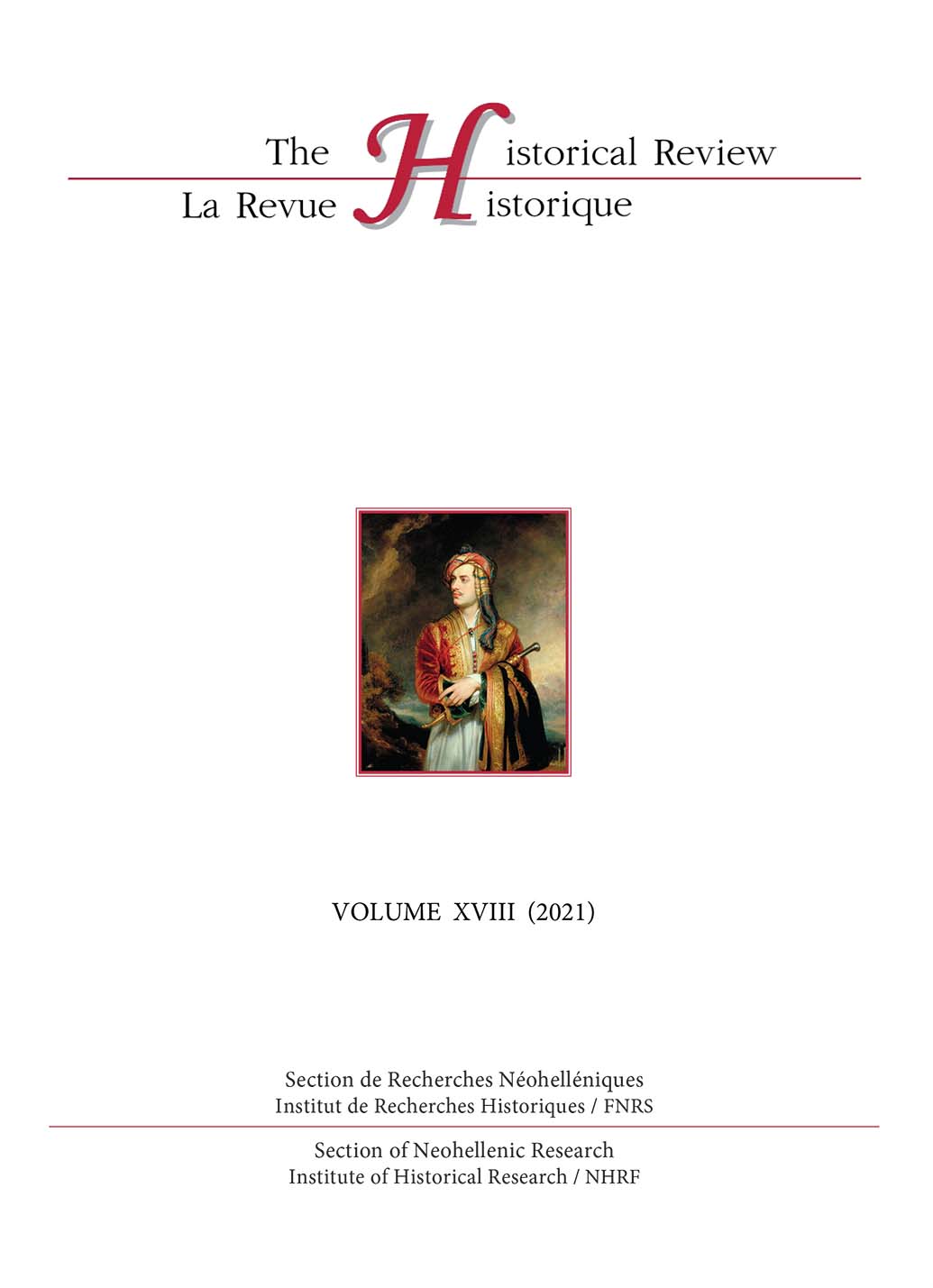Special Section I: Mad, Bad or Sad? Unruly Passions and Actions in Modern Greece (Introduction)
Abstract
More than a century ago, Dutch historian Johan Huizinga wrote, in a book that
would become a bestseller, The Autumn of the Middle Ages (1919): “One may well
ask, … is joyfulness and quiet happiness nowhere to be found? To be sure, the age
left in its records more traces of its suffering than of its happiness. Its misfortunes
became its history.”1 Although Huizinga was referring to the Middle Ages, the
authors of this special section, all modern historians, are quite familiar with
the idea that available historical documents often chart human “misfortunes”
rather than pleasure and happiness. From across the nineteenth and twentieth
centuries, a period that roughly charts the chronological range of all articles in
this section, available primary sources still provide ample information on what
was forbidden, controlled or punished, sketching a vivid picture of modernity’s
historical subjects being criminalised, punished, castigated and redeemed.2 All
five articles that follow revolve around “unruly” passions and “unnatural” actions
in Greece, and belong to this long historical tradition of dealing with what
different cultures in different times excluded from “normality”.3 They document
how several public and private discourses attempted to express, decode, classify,
punish, prevent or even cure a number of undesired social realities, such as homicides,
mental and sexual “abnormalities” or “dysfunctions”, and nervous
and emotional “disorders”.
Article Details
- How to Cite
-
Vassiliadou, D. (2022). Special Section I: Mad, Bad or Sad? Unruly Passions and Actions in Modern Greece (Introduction). The Historical Review/La Revue Historique, 18(1), 13–18. Retrieved from https://ejournals.epublishing.ekt.gr/index.php/historicalReview/article/view/31312
- Section
- Special Section

This work is licensed under a Creative Commons Attribution-NonCommercial-ShareAlike 4.0 International License.
The copyright for articles in this journal is retained by the author(s), with first publication rights granted to the journal. By virtue of their appearance in this open access journal, articles are free to use with proper attribution in educational and other non-commercial sectors. The Historical Review/La Revue Historique retains the right to publish papers that appear in the journal in collective volumes published by the Institute for Neohellenic Research/National Hellenic Research Foundation.
Sample acknowledgement: Reprinted with permission from the author. Original publication in the The Historical Review/La Revue Historique www.historicalreview.org
This work is licensed under a Creative Commons Attribution-NonCommercial-ShareAlike 4.0 Greece License. To view a copy of this license, visit http://creativecommons.org/licenses/by-nc-sa/4.0/ or send a letter to Creative Commons, 543 Howard Street, 5th Floor, San Francisco, California, 94105, USA



